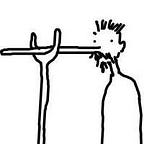Police
jǐngchá 警察
Policemen in China are generally to be avoided, not because they pose as much of a threat to visitors as they do to their own countrymen, but because they tend to be more of a hindrance than a help. Effectively in China the law is what a policeman says is it, and like most other officials policemen should be assumed corrupt until proven honest. There are honest policemen, but the response of ordinary Chinese is to keep as far away from the police as possible and to flatter and bribe when necessary. Visitors to China cannot so easily be made into victims and are mostly left alone by police. However, they are often reluctant to do their jobs, and will frequently refuse to help visitors by investigating frauds or petty assaults, for instance, or registering thefts for the purpose of insurance reports. Some persistence is necessary. On the other hand a desire to give a foreigner a good impression of law and order in China may sometimes lead to far more attention being paid to a foreigner’s problem then if the same problem were to be experienced by a Chinese. The Chinese know this, and find it galling.
As with other areas of Chinese administration the left hand is often entirely unaware of the right hand’s existence. Officials in two neighbouring areas may give completely different answers to a question and one may refuse to honour documents issued by the other. Two different policemen on different days at the same station may also give different answers, but always with the tendency to say ‘no’, because this involves both less work and less responsibility than saying ‘yes’. Policemen generally have a poor understanding of their own rules and regulations, and a low level of education.
There are several different types of policemen (警察, jǐngchá) in China, although foreigners in China simply refer to them all as PSB, from Public Security Bureau (公安局, gōng’ān jú, with roughly the same meaning as police station). There are, for instance, the straightforward police (刑警, xíngjǐng), the People’s Armed Police (武警, wǔjǐng), traffic police (交警, jiāojǐng), train police (乘警, chéngjǐng), and the notoriously brutal chéngguǎn (城管, city management), who are not actually police at all.
With all the military and the private security guards it sometimes seems as if half the population is in uniform. You may wonder why a policeman is simply an onlooker at a street brawl. “Oh, I’m from the economic police,” he explains. Street disturbances are not his problem. On the other hand the train police get involved in far more than crime, helping to ensure, for instance, that would-be petitioners against local injustice and corrupt cadres are prevented from reach Běijīng, and taking thousands into custody, particularly during the annual ‘Two Meetings’ in March, and around the 4 June Tiān’ān Mén anniversary.
Visitors to China usually only encounter the police when applying for an extension to their visas (see p.45) or registering when staying at any non-hotel address.
In general the police have little interest in foreigners, although larger police stations in general have at least one person with a theoretical knowledge of English. The police have been known to be helpful in dealing with reports of scams, such as those listed under Crimes, Scams, and Nuisances. But on other occasions the attitude is that if you’re stupid enough to have fallen for any of them it’s your own look-out, and there’s less objection to a foreigner being cheated by Chinese than vice versa.
When faced with unreasonable rulings, the Chinese response is never to challenge the fairness or legality of the decision, but simply to decide which is the least harmful of the options open to them. Police can detain people for 30 days without charge (in practice for unlimited periods) and can sentence them to years of ‘administrative detention’ without resort to the courts. In theory detention was done away with in 2014, but there are other methods that amount to the same thing.
If detained for any reason, contact your consulate.
Click links below for other practical information on travel to Běijīng, or go to the Main Index of A Better Guide to Beijing (home page).
For moderated on-line discussion of China travel, join The Oriental-List.
